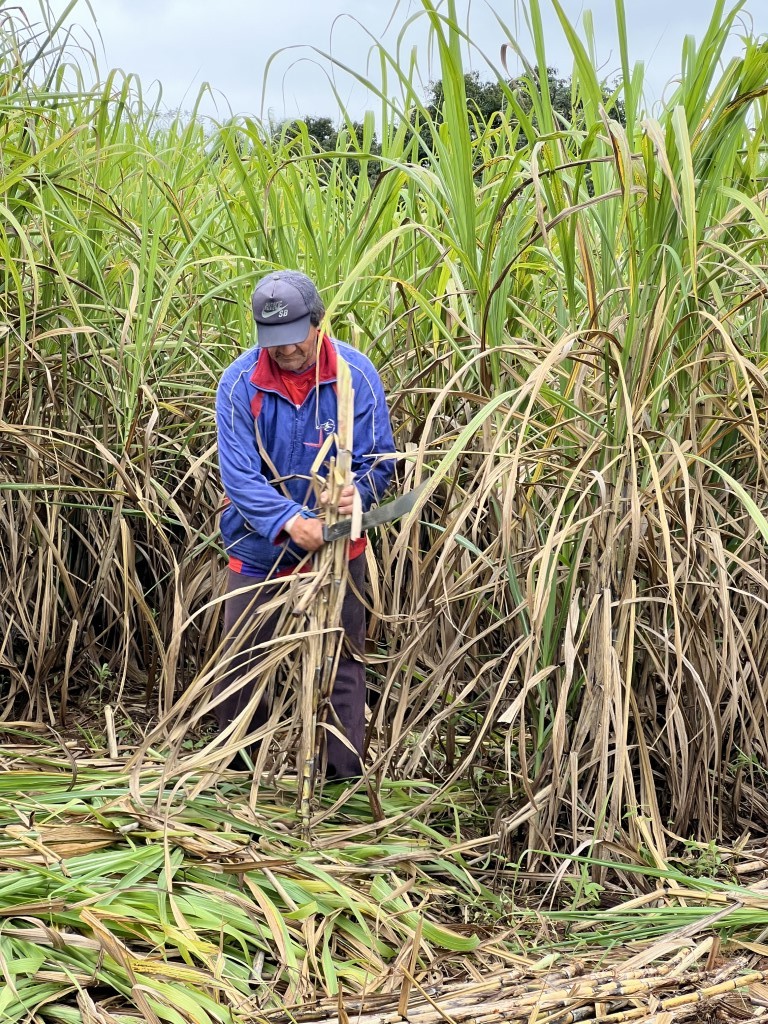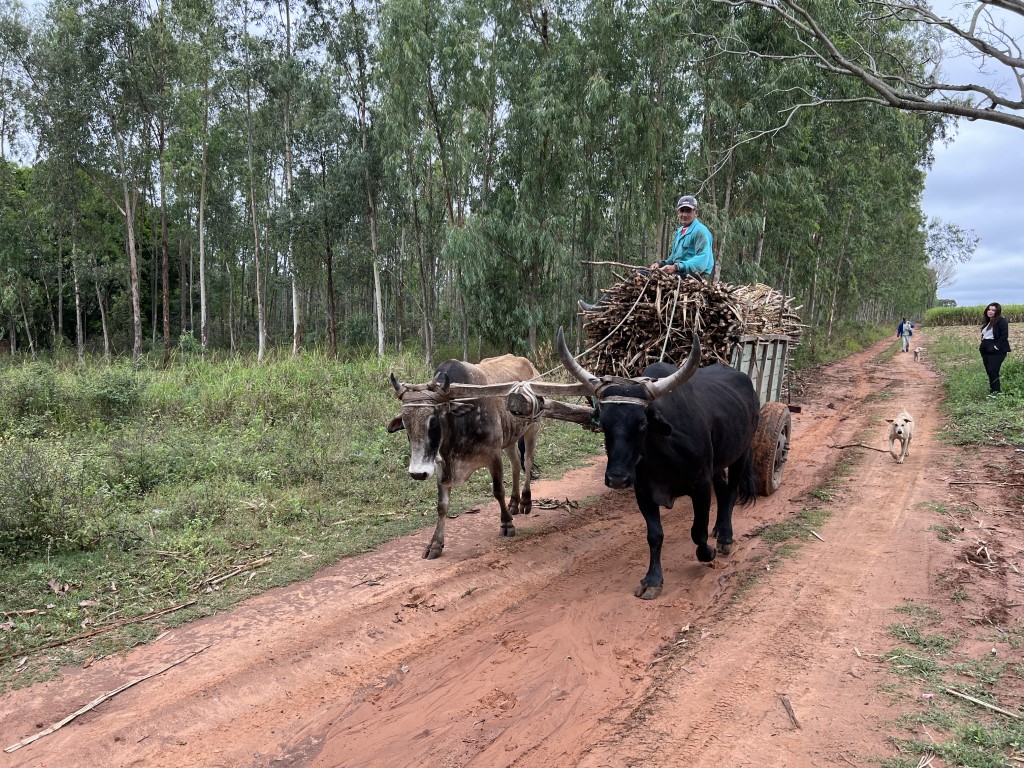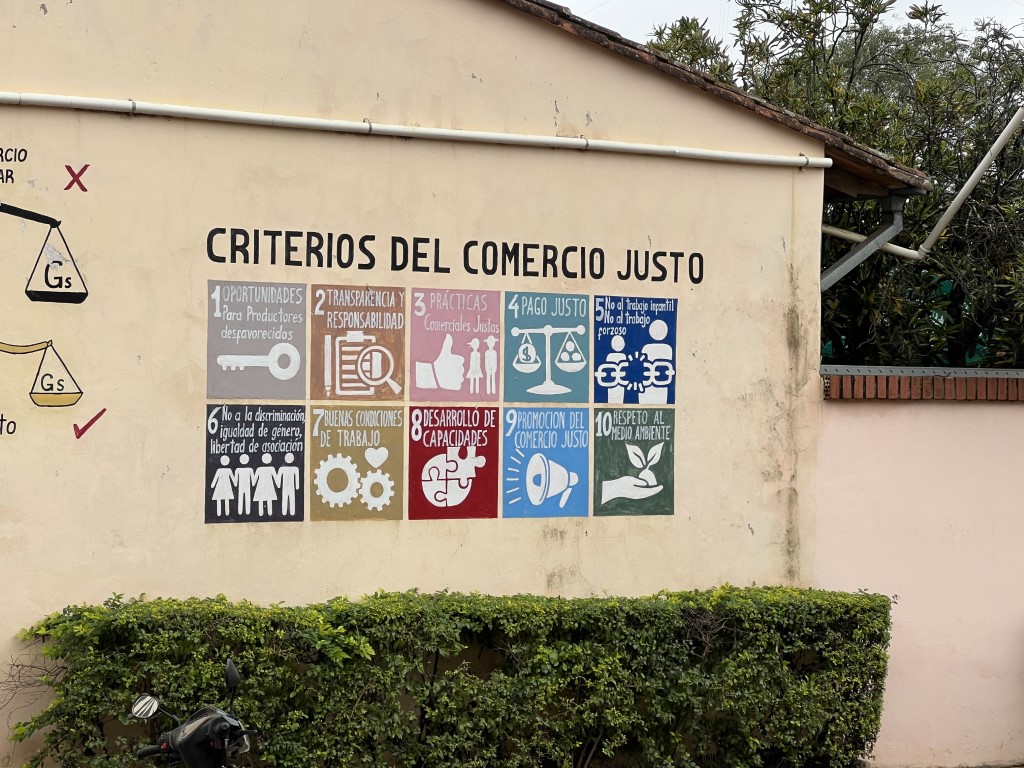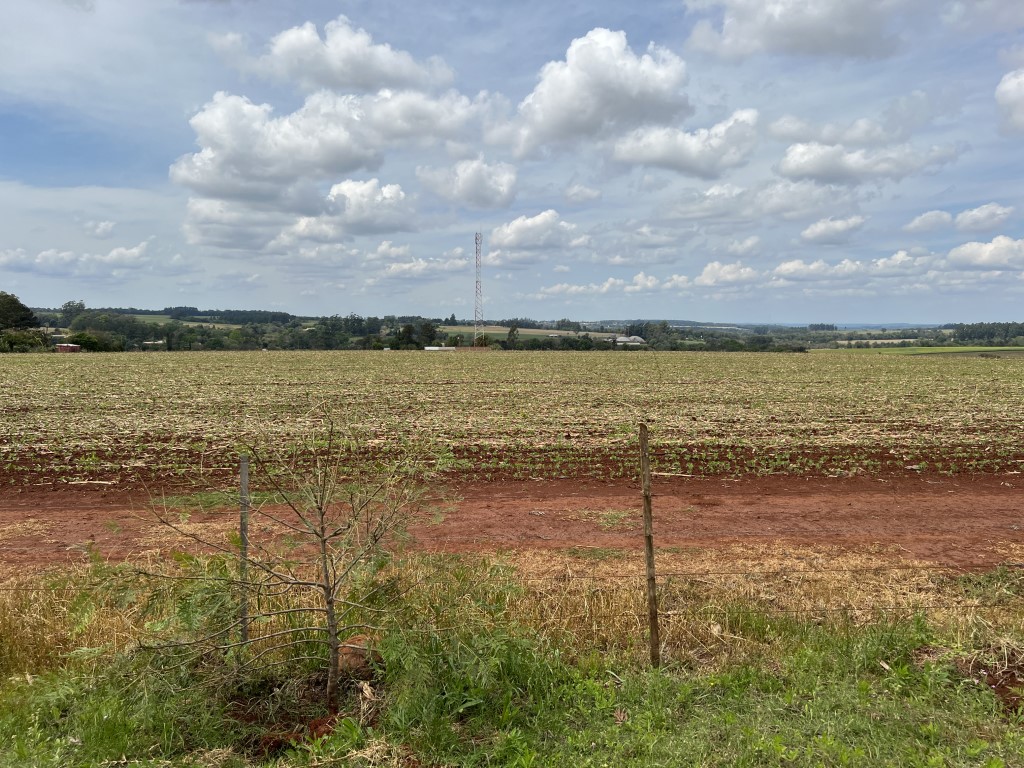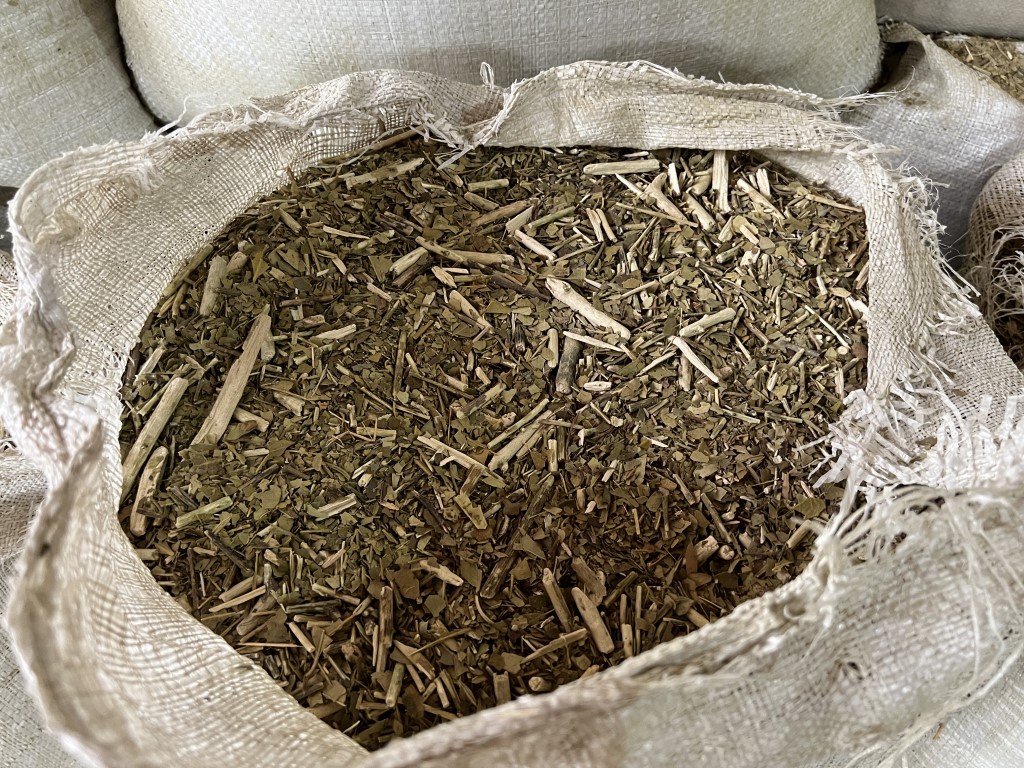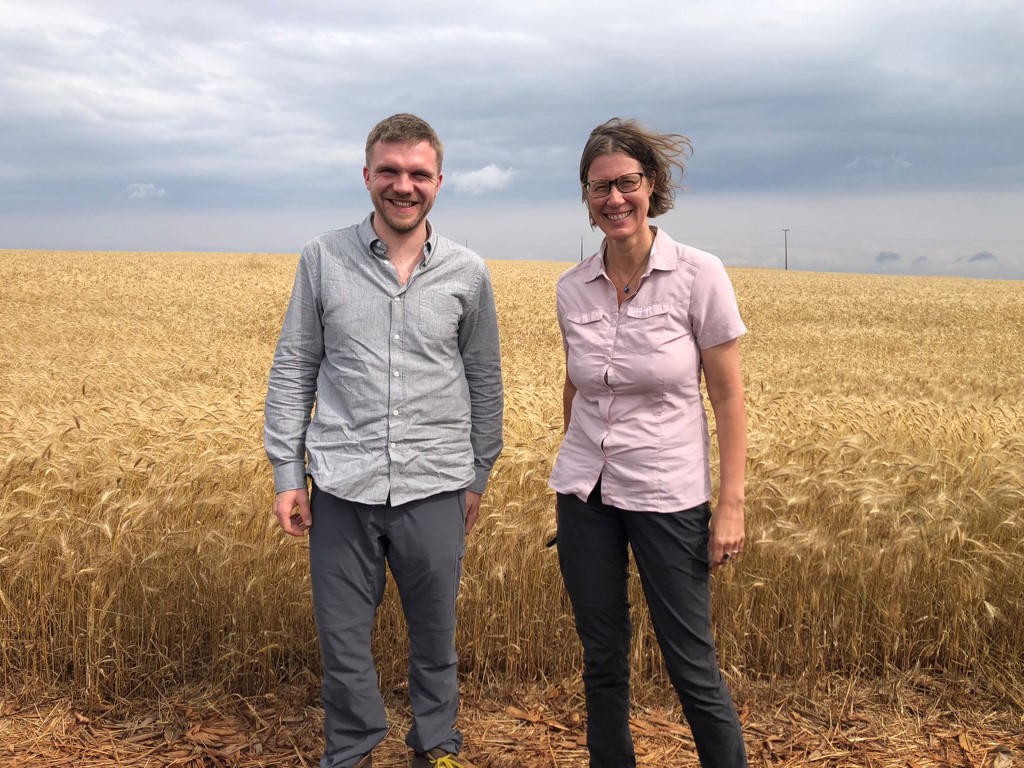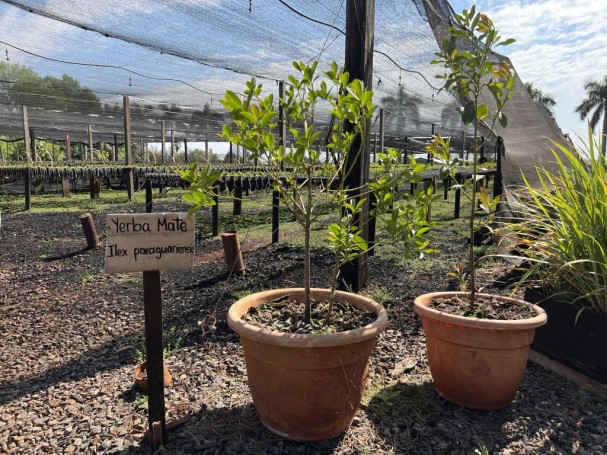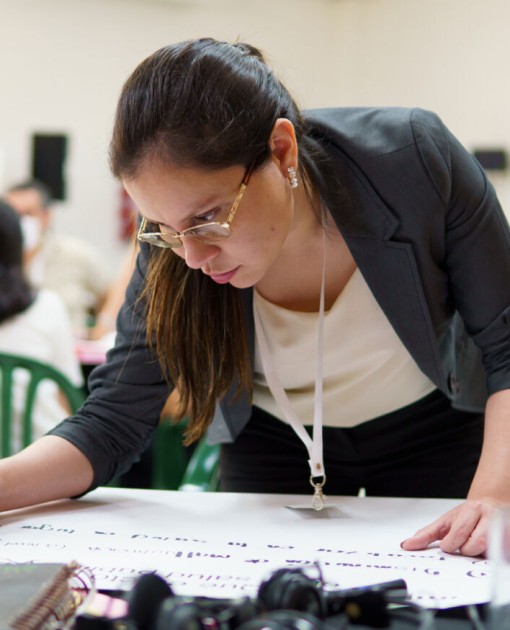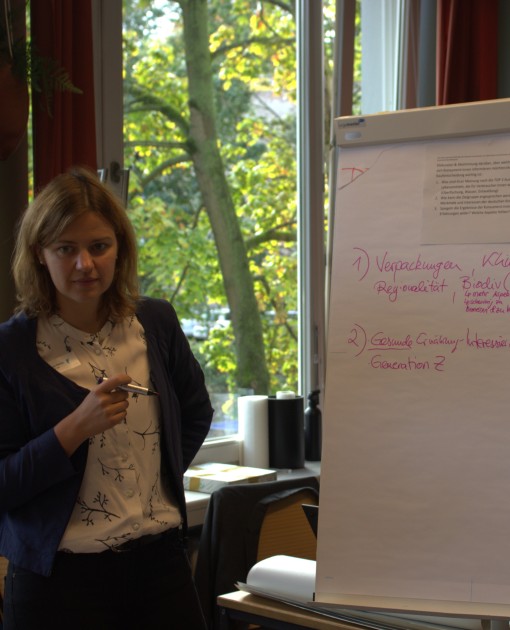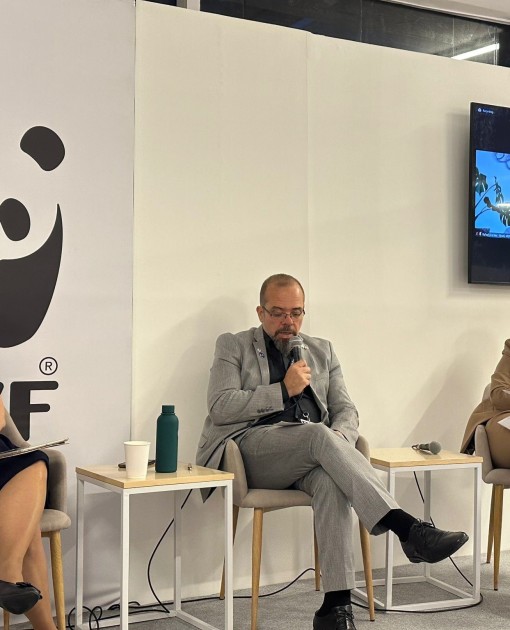As part of the CLIF project, corsus is currently visiting producers of mate, sugar and soy in Paraguay. Case studies are being conducted on these products to help clarify methodological issues in the development of the communication tool being developed in the CLIF project. The three products were selected together with WWF Paraguay, which also organized the visits, as they are typical of Paraguay. The trips took Ulrike Eberle and Marius Rödder to the area of Encarnación, of Ciudad del Este and northeast of Asunción. The insights into local production were very exciting.
Mate, which is grown in particular for the Paraguayan national drinks mate tea and tereré, is harvested once a year in the fall and winter months in the southern hemisphere. After the plants have been cut, the so-called zapecado takes place, which means that the fresh tea leaves are exposed to high temperatures directly after harvesting in order to prevent oxidation processes. The high temperatures of up to 400°C are generated by a wood fire. This is also where mate gets its characteristic aroma. This is followed by further drying processes until the mate has only a low defined moisture content. The tea is then stored for two years to mature. In the mate bar of the production plant, we were able to test the different mate blends. We were impressed by the long aging process that is necessary to produce a good mate tea.
The next visit was to a farm that grows soybeans. The farm belongs to a cooperative that cultivates soybeans in rotation with corn and wheat, but also oats. The peculiarity of this region is that there are two harvests per year, the main harvest (Zafra) and the so-called small harvest (Zafriña). After the harvest, the cooperative sells the soy to a soy mill, which produces soybean oil and extraction meal. Soybean meal is used especially in animal husbandry as a protein component.
We also visited an organic farm that produces cane sugar. The cooperative produces different sugar qualities for the world market and is also Fair Trade certified in addition to the organic certification. The sugar cane is grown by hand, the plants are planted and harvested once a year for about four years. The sugar cane is cut by hand, and transported to the sugar refinery by ox cart and in some cases by tractor. At the refinery, the sugar cane is then broken down, the sugar is extracted and crystallized into sugar crystals. The cooperative recycles its processes as much as possible: Steam is generated by burning the bagasse produced. The hot steam is first used to generate the required electrical energy. The steam is then used to dissolve and concentrate the sugar solution. The cooled water vapor is condensed and returned to the cycle. Organic fertilizers are produced from other residual materials from sugar production and from part of the bagasse, which are then used again in the cultivation of the sugar cane.
We look forward to continuing to work with the producer:s on the case studies and are excited to see the results. Many thanks to WWF Paraguay for the organization and great cooperation!
More information about corsus: Homepage – Corsus
